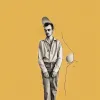Discovering Words through Chance
“Chance is always powerful. Let your hook always be cast; in the pool where you least expect it, there will be fish.” — Ovid
Introduction
In the vast realm of literature, the books we own are often filled with words and sentiments yet to be discovered. But with so many books and so little time, where does one start? Enter the whimsical and unpredictable art of random selection. Through the simple act of picking random numbers, one can embark on a serendipitous journey through their bookshelf, finding inspiration where they least expect it.
Historically, scholars, poets, and artists have turned to chance as a muse, seeking insights and inspirations from the unexpected. Drawing from this age-old practice, the simple act of selecting words at random from our personal libraries can be the springboard for unprecedented creativity.
Historical Embrace of Randomness
Long before our modern methods, randomness and chance have played a significant role in artistic and scholarly endeavours:
- I Ching: Known as the Book of Changes, this ancient Chinese text has been used for millennia for divination. Users would cast a set of sticks or coins to randomly determine hexagrams, which would then offer wisdom or advice.
- Sortes Virgilianae: An ancient practice where individuals would seek guidance or prophecy by randomly selecting a passage from Virgil's works, particularly the “Aeneid.” The chosen passage would be interpreted as a message or omen relevant to the reader's situation.
- Dadaism: A 20th-century Avant-Garde art movement that embraced chaos and unpredictability. Dadaists often used random methods, like drawing words from a hat, to create poetry or to determine the order of events in performances.
Drawing from these traditions, we can see the appeal of allowing randomness to interrupt our patterns of thought and provide fresh perspectives.
The Charm of Chance
Randomness introduces an element of surprise. By letting go of intent and allowing chance to guide our hand, we open ourselves up to discovering the unexpected gems that lay hidden within our own collection. Such an act contrasts our day-to-day lives where choices are made deliberately, offering a fresh perspective and, perhaps, unexpected wisdom.
Navigating the Bookshelf through Numbers
- Selecting the Book: Assign each book on your shelf a number. Use a random number generator, dice, or simply draw numbers from a hat to select a book.
- Choosing the Page: Once you have your book, decide the range of pages you're willing to explore (perhaps you want to avoid the introduction or index). Generate a random number within that range.
- Finding the Line: Determine a range for lines per page, for example, 1-30 for an average-sized book. Generate a number within this range to select a line.
- Picking the Word: Similarly, decide on an average number of words per line and generate a random number.
- Repeating for Richness: To gather a handful of inspiring words, repeat this process multiple times. Three to five words can provide a robust foundation for inspiration.
The Fruits of Randomness
After completing the process, you may find yourself with an array of unrelated, mysterious words. On the surface, they may appear disjointed, but here’s where the magic happens:
- Pondering the Possibilities: Mull over these words. Let them ruminate in your mind. You'd be surprised how often a story, poem, or new idea begins to form from this seemingly arbitrary collection.
- The Juxtaposition Journey: The beauty of these random words is in their juxtaposition. They don’t typically sit together in everyday sentences, and this unfamiliarity can spark creativity.
- The Daily Draw: Make this a daily or weekly ritual. Over time, you'll not only rediscover your book collection, but also consistently fuel your creative endeavours.
In our data-driven, algorithm-defined world, the allure of randomness offers a breath of fresh air. By turning to the bookshelves, we've so lovingly curated and introducing an element of serendipity, we gift ourselves the opportunity to see literature, and perhaps life, through a new lens. So the next time you're seeking inspiration, remember: dice, some numbers, and a dash of unpredictability might just be the muse you've been searching for.

